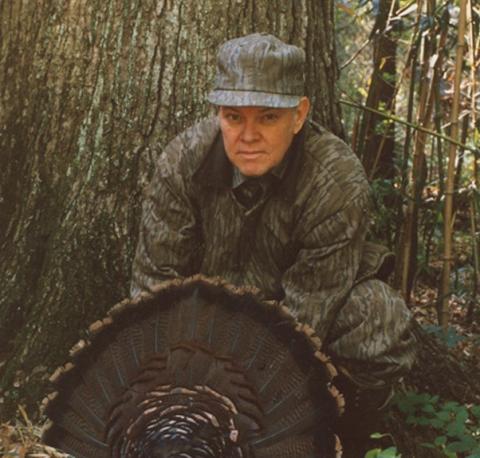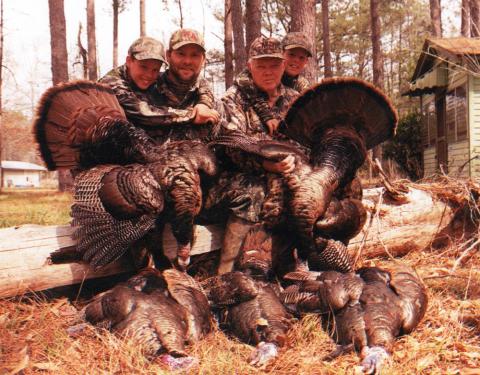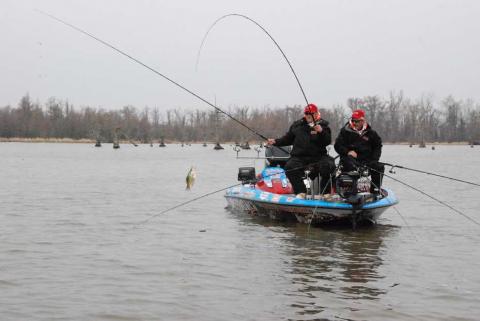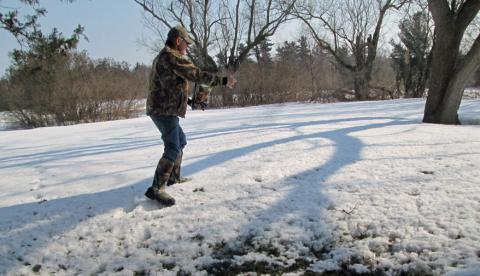Outdoor enthusiasts often consider fishing a separate activity from backpacking, particularly if you're a fan of ultralight backpacking. After all, fishing equipment is usually extra bulky, and it can be challenging to carry for long distances. However, lightweight fishing gear for backpacking is changing the game.
There are undeniable advantages to backpacking fishing gear, especially if you want access to better fishing spots. Learn the best tips and tricks to combine fishing and backpacking in a single trip.
Why Combine Fishing with Backpacking?
It's fun to commune at your local river or lake with other anglers. However, sometimes you just want to be in a remote spot, enjoying the quiet and solitude between you and nature.
Fishing while on the trail has plenty of benefits. The ability to catch some delicious fish to supplement your backpack meals is a big perk. However, one of the most important advantages is the opportunity to fish in spots that not many anglers get the chance to experience. Compact fishing equipment for hiking can help you do that without the hassle.
Imagine pitching a tent right next to a gorgeous lake that's teeming with fish. You can catch your dinner in the afternoon, eat it by the campfire that evening and sleep right where you are throughout the night. There's something that feels incredibly primal about combining these ancient skills, giving you an intense sensation of being connected to nature.
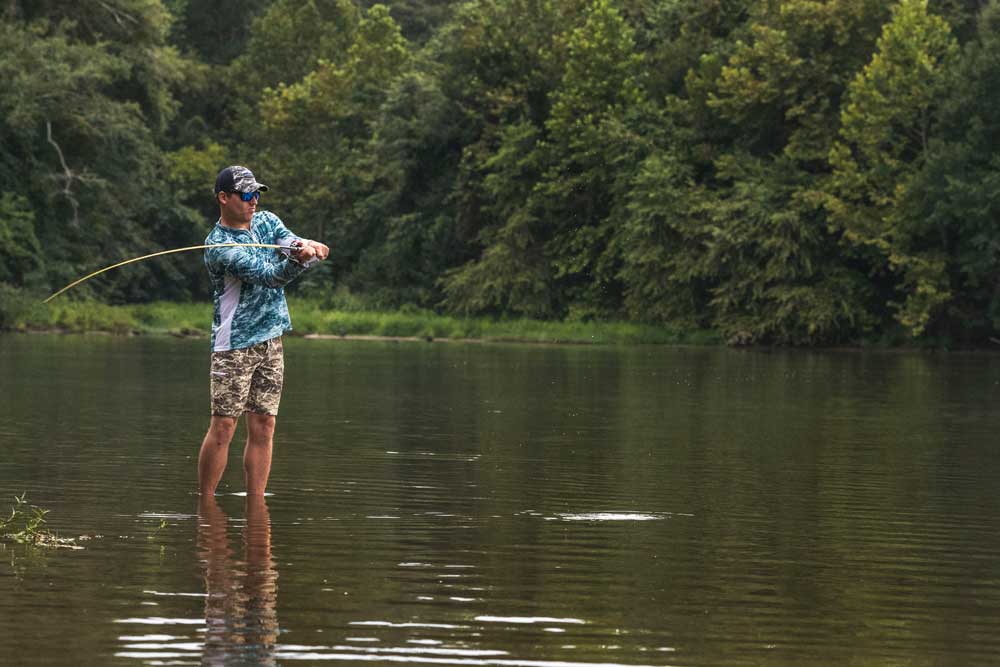
Lightweight fishing gear, like ultralight fishing kits for camping, will still add weight to your backpack, but nowhere near the bulk weight of standard fishing equipment. Make sure to test out if the load is comfortable to carry for long distances before heading out on your fishing excursion. You don't want to find out it's too heavy while you're already far from home.
There are also other key tips worth keeping in mind.
- You need to have a fishing license before you put your line in the water, and you must carry it with you. Comply with all federal and local laws regarding fishing.
- Having performance fishing gear isn't all you should take with you. If you intend to eat the fish that you catch onsite, you also need equipment to clean and cook it, such as a suitable knife and backpacking cookware.
- There are no tackle shops on the trail. Bring all the supplies, lines, portable fishing tackle for backpackers and bait you'll need for the entire trip.
- Make sure you have waterproof gear for fishing. While this may seem obvious, you may be surprised by gear like camp chairs, phone cases and even jackets that might not be waterproof.
Fishing while backpacking can be easy when you have the right gear. Make sure you also consider temperatures and weather conditions. The new Mossy Oak fishing shirt styles offer optimal sun protection, easy movement and quick-dry fabric so you can stay comfortable on and off the trail.
Fishing Rods
Backpackers nowadays have access to a wide array of fishing rods and poles, including some of the best backpacking fishing rods that can enhance your favorite hobby. There are three types of rods on the market to consider using for your next fishing adventure.
Fly Rods
Fly fishing involves using a fly rod, several yards of fly line and a well-made fly. It's one of the most natural ways to catch fish and feels almost like a meditative process. Unlike spinning gear, you can use your fly rods almost everywhere, including lakes, rivers and streams.
However, this method isn't without its downsides. Fly fishing requires plenty of open space for casting the rod and a certain level of experience and proficiency to be effective.
Most importantly, fly rods are typically long and delicate. You can purchase take-down fly fishing rods that break down into multiple pieces, but they must be handled carefully and usually require protective bags during transport.
Tenkara Rods
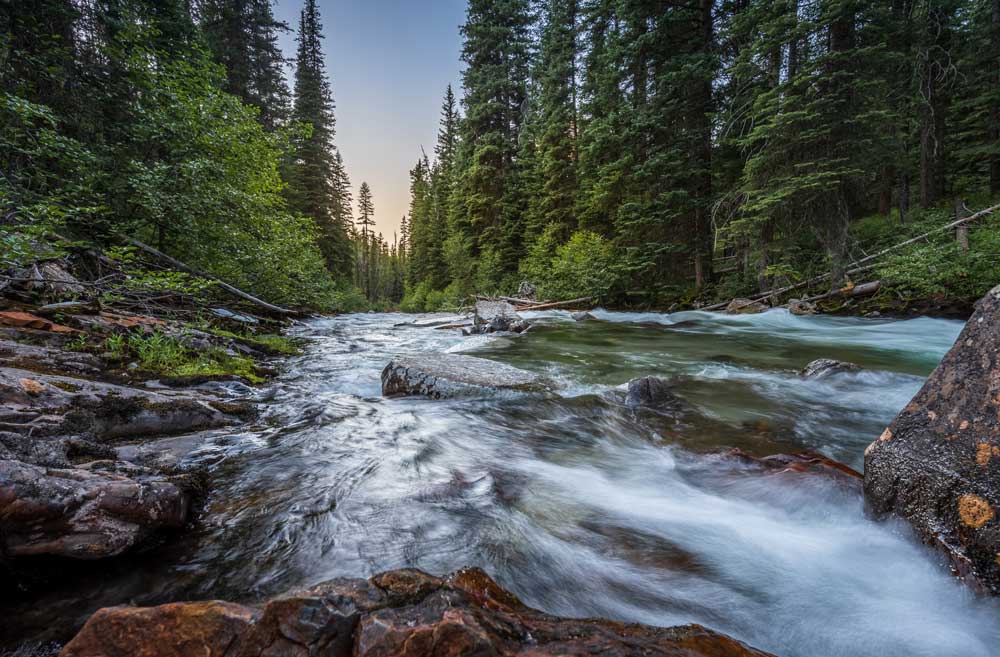
The concept of Tenkara fly fishing comes from Japan. The word "Tenkara" translates to "from heaven," referring to a style of fly fishing where an angler uses a fly rod with no reel and a fixed length of fishing line.
A typical Tenkara rod is straight and telescoping. When fully extended, it measures 10 to 12 feet long. Tenkara rods are lightweight, weighing only a few ounces. They're mechanically simple with just three parts: a rod, line and fly. These properties make Tenkara rods naturally suited for backpacking.
Since Tenkara fly fishing is a form of fly fishing, it requires open space and practice and comes with the added limitations of fixed rod and line lengths. It's an excellent way to catch fish on the trail if you're skilled with it. However, you may prefer a different method if you're not yet confident with its operation.
Compact Rods
Many compact fishing rods are telescoping, allowing you to collapse them into a portable, lightweight package. However, unlike Tenkara rods, compact rods have spinning reels, allowing backpacking anglers to use more accessible casting techniques.
They're identical to a spinning reel rod but have the advantage of being collapsible and easily transported in a backpack. Less experienced anglers typically have more success catching fish with this rod style, especially compared to the Tenkara rod.
However, what you gain in convenience and ease of use, you lose in weight and compatible accessories. Compact rods are typically heavier than other types, and you may need specific complementary accessories. However, if you usually go fishing where fly fishing would be impractical, there's no better solution.
Other Essential Gear
It's important to be mindful of the weight and size of anything you add to your backpack. It can add up quickly and be especially noticeable on long hikes to the backcountry after you've been walking for a while. In addition to the rod, depending on what you want to do, you may also need the following equipment:
Fishing Line
You may know how to tie a fishing hook to your line, but do you know how to select the right line? If you prefer fly fishing, carefully choose and match your line to the rod you use. If you're unsure of your best option, ask fellow anglers at your local fishing supply store for advice. Chances are, they will be happy to help and talk fish.
For spinning reels, such as those used for compact rods, the ideal weight range for backpacking fishing lines typically falls between five and 10 pounds, depending on the type of fish you want to catch. Fluorocarbon lines are a great choice because they're nearly invisible in the water and cause minimal disturbance to the surface.
Lures
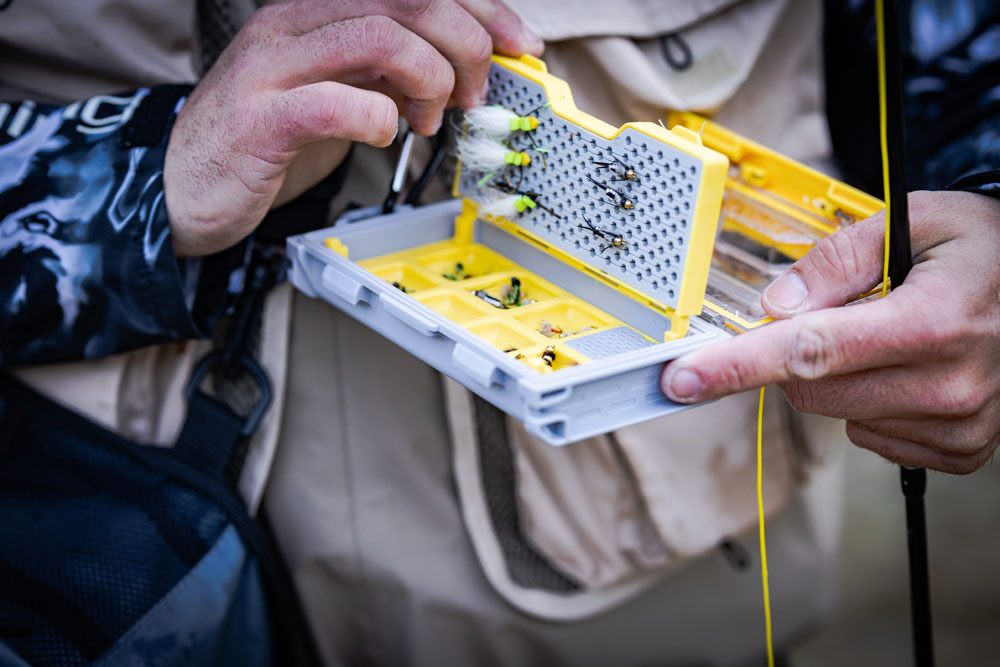
Whether you need a fly for traditional fly fishing or Tenkara fishing, you'll find endless types and variations. Some of the favorites for anglers of all levels include wooly buggers, nymphs or caddisflies, but selecting a fly is not an exact science. The best way to know what works for you is to go out there and try it for yourself.
Basics of Nymph Fishing
If you plan to fish with a compact rod, match your tackle to the species you'll most likely catch. For example, if you plan to fish for bass or trout, consider bringing swim jigs, Senko worms or spinners.
Avoid using heavy tackle. Heavy casting tackles are ill-suited for fishing in shallow, fast-moving waters such as rivers and streams unless you're fishing in a large, deep lake.
Before you decide on what lure or fly to take, check the local or state fishing report for the waters you'll be fishing. If you're going to pack the extra weight that comes along with many types of standard fishing gear, make sure it's worth it by bringing a lure or fly that fish are biting.
Net, Stringer and Pliers
If the plan is to catch catfish, you may not need a net, especially if you're fishing for larger species. However, using one can still make handling easier. If you're planning to catch trout, you'll want to bring a small collapsible net. There are many ultralight nets on Amazon and in outdoor stores. You can also create a makeshift stringer from a limb or fishing line, although stringers like these have their limits. If you can spare the weight, consider taking a lightweight stringer. Make sure to also put a pair of needle-nose pliers in your backpack. Keeping your pliers in the same pocket as the rest of your fishing gear makes it easier to remove hooks from both the fish and yourself.
Travel Light, Travel Smart
With the right amount of preparation, it's possible to bring fishing gear with you on the trail and keep your kit lightweight. Don't forget to pack a good knife and portable cooking equipment, which should be part of a well-rounded backpacking kit. You'll need these if you intend to clean and cook your fresh catch onsite.
If you're unfamiliar with the trail, you can use Google Earth, a phone app or other maps to find a good place for a campsite with easy access to the water. This will also give you a better sense of the route and determine how far you need to hike to reach your destination. Always let a trusted friend or family member know where you plan to camp, your intended route and what time you're expected to leave and arrive. If there's an emergency, they'll know where you should be and how you got there.
Your Dinner Is Your Reward
There are many advantages to backpacking through the backcountry with a fishing rod. You'll have access to fishing waters that aren't often fished, which means the fishing is usually plentiful and much more enjoyable. Let's not forget that any fish you catch yourself tastes much better than dehydrated food. There's also something rewarding about camping near a stream, cooking fish over a fire and creating lifelong memories that keep you coming back.




















